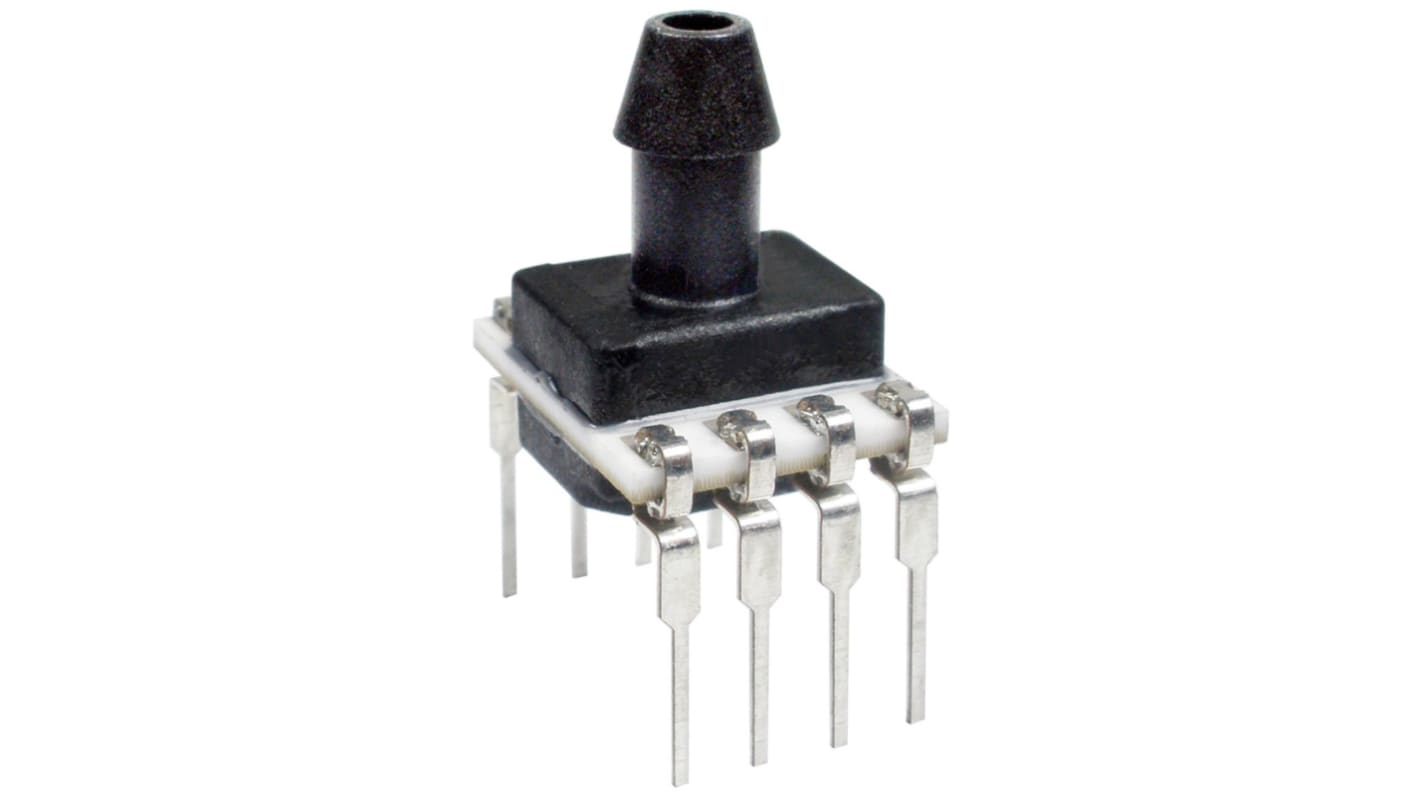Honeywell Gauge Pressure Sensor, 100kPa Operating Max, PCB Mount, 8-Pin, 200kPa Overload Max, DIP
- RS Stock No.:
- 211-9917
- Mfr. Part No.:
- HSCDANN001BG2A5
- Brand:
- Honeywell

Bulk discount available
Subtotal (1 unit)*
£40.15
(exc. VAT)
£48.18
(inc. VAT)
FREE delivery for orders over £50.00
Being discontinued
- Final 3 unit(s), ready to ship
Units | Per unit |
|---|---|
| 1 - 4 | £40.15 |
| 5 - 9 | £34.05 |
| 10 - 24 | £32.04 |
| 25 - 39 | £30.03 |
| 40 + | £29.59 |
*price indicative
- RS Stock No.:
- 211-9917
- Mfr. Part No.:
- HSCDANN001BG2A5
- Brand:
- Honeywell
Specifications
Technical Reference
Legislation and Compliance
Product Details
Find similar products by selecting one or more attributes.
Select all | Attribute | Value |
|---|---|---|
| Brand | Honeywell | |
| Maximum Overload Pressure | 200kPa | |
| Mounting Type | PCB Mount | |
| Package Type | DIP | |
| Pin Count | 8 | |
| Maximum Operating Pressure | 100kPa | |
| Maximum Operating Supply Voltage | 6 V | |
| Maximum Operating Temperature | +85 °C | |
| Minimum Operating Temperature | -25 °C | |
Select all | ||
|---|---|---|
Brand Honeywell | ||
Maximum Overload Pressure 200kPa | ||
Mounting Type PCB Mount | ||
Package Type DIP | ||
Pin Count 8 | ||
Maximum Operating Pressure 100kPa | ||
Maximum Operating Supply Voltage 6 V | ||
Maximum Operating Temperature +85 °C | ||
Minimum Operating Temperature -25 °C | ||
Honeywell Pressure Sensor, PCB Mount, 100kPa - HSC Series - HSCDANN001BG2A5
Mount this Honeywell pressure sensor onto a printed circuit board (PCB) to accurately measure the pressure of gases and liquids. This component is piezo-resistive, so it uses thin sections of silicon to detect minute changes in electrical resistance. Thanks to its DIP (dual in-line package) pin setup with eight pins arranged in parallel rows, mounting onto PCBs is quick and simple. It also offers full analogue and digital output so you can take readings easily. You can use this component for a variety of applications, such as monitoring dynamic pressure changes in pyrotechnic devices.
Features & Benefits
• Maximum operating pressure of 100kPa for use in most everyday operating conditions
• Maximum overload pressure of 200kPa for added safety
• Maximum overload pressure of 200kPa for added safety
Applications
• Haemodialysis machines
• Ventilators
• Gas flow and air pressure measurement
• Ventilators
• Gas flow and air pressure measurement
How can I protect this pressure sensor against failure?
Pressure sensors can fail due to mechanical damage, as well as electrical overload from lighting, a misconnection during maintenance or a tripped circuit. This means it's important to protect your circuit against electrical hazards. Moisture and chemicals can also cause the pressure sensor to fail or give an inaccurate reading, so it's important to protect the sensor from harsh conditions when possible.
